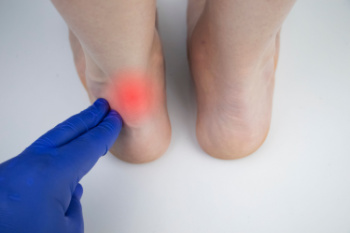How to Diagnose an Achilles Tendon Injury

Diagnosing Achilles tendon injuries is essential for effective treatment and recovery. Common symptoms include pain along the back of the heel, swelling, and stiffness, particularly in the morning. A chiropodist will begin with a physical examination to assess tenderness and range of motion. One vital diagnostic tool is the Achilles tendon rupture test, known as the Thompson test. During this test, the patient lies face down while the examiner squeezes the calf muscle. If the foot does not move, it may indicate a rupture of the Achilles tendon. Additional imaging tests like ultrasounds or MRI scans can provide further clarity on the extent of the injury. If you have pain in the lower part of your calf, it is suggested that you schedule an appointment with a chiropodist who can perform the correct diagnostic test for an Achilles tendon injury.
Achilles tendonitis is a common injury of the Achilles tendon, a band of fibrous tissue that runs along the back of the lower leg. The Achilles tendon can also rupture, making it impossible to lift the foot. If you are suffering from heel or calf pain, please consult with one of the chiropodists from The Footcare Centre. Our chiropodists can help you maintain the health of your lower limbs and your mobility.
Causes of Achilles tendon injuries include:
Repetitive stress or overuse
Sudden increase in activity levels
High impact injury
Calf muscle tightness or weakness
Altered foot biomechanics
Heel bone spurs
Underlying medical conditions that weaken the tendon
Symptoms of an Achilles tendon injury include:
Heel and calf pain that worsens following exercise
Chronic heel and calf pain
Sudden pain in the back of the ankle or calf
A popping or snapping sensation
Thickened lump in the Achilles tendon
Ankle and calf stiffness
Decreased range of motion in the affected foot
Swelling
Difficulty walking
Treatment
Resting the affected leg
Applying ice
Compressing the foot and ankle
Elevating the injured leg
Wearing orthotics
Low impact exercises
Stretches
Strengthening exercises
Non-steroidal anti-inflammatory medications
Cortisone injections
Surgery, if the tendon is ruptured
Achilles tendon injuries can be very painful and lead to reduced mobility if left untreated. If you have any questions, please feel free to contact our office located in . We offer the newest diagnostic and treatment technologies for all your foot care needs.
